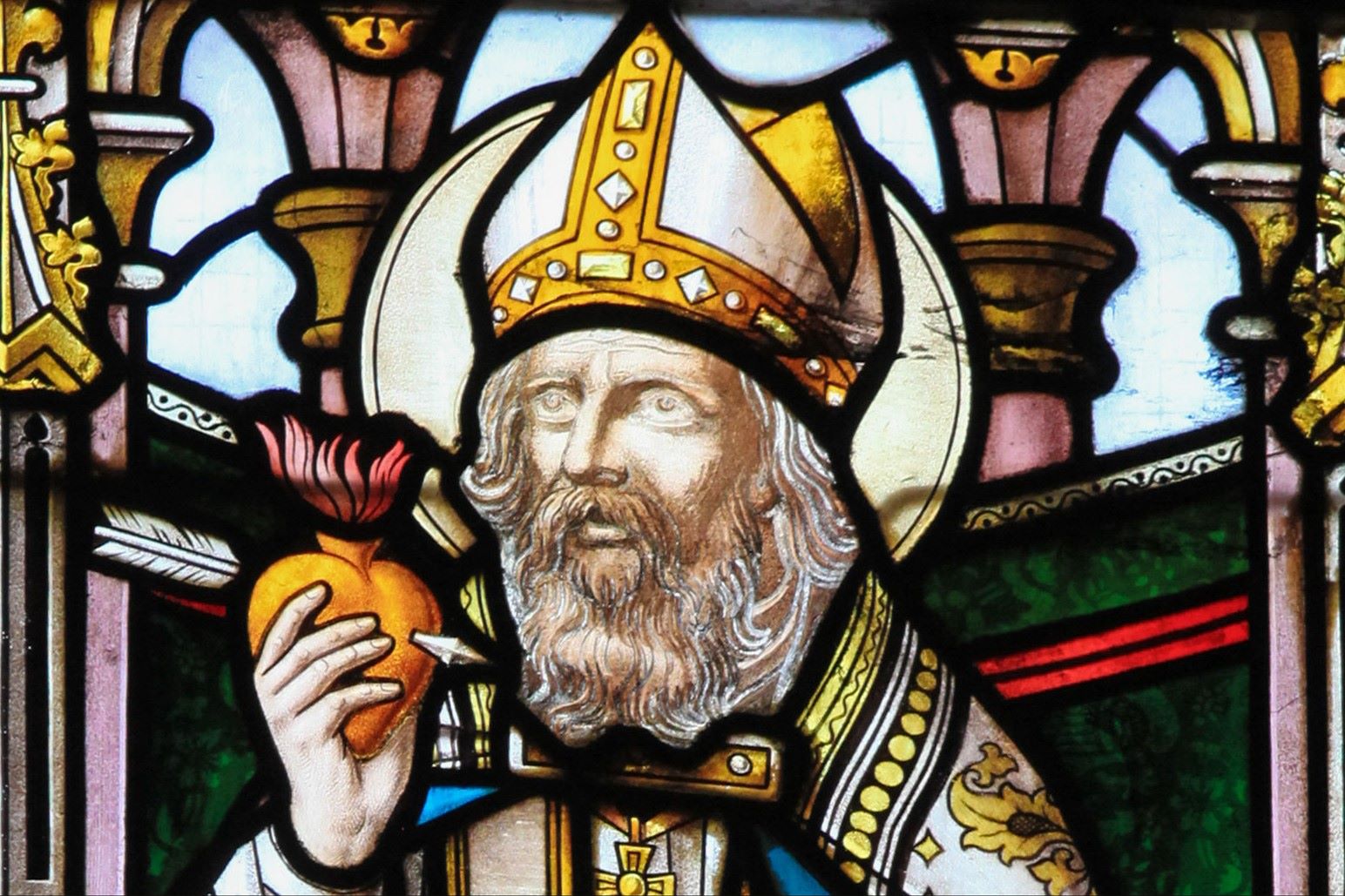Home>Theology and Spirituality>What Did Jesus Say About Baptism?


Theology and Spirituality
What Did Jesus Say About Baptism?
Published: March 2, 2024
Peter Smith, Editorial Director at Christian.net, combines deep insights into faith, politics, and culture to lead content creation that resonates widely. Awarded for his contributions to religious discourse, he previously headed a major organization for religious communicators, enhancing dialogue on faith's societal impacts.
Discover what Jesus said about baptism and its significance in theology and spirituality. Explore the teachings and importance of baptism in Christian faith.
(Many of the links in this article redirect to a specific reviewed product. Your purchase of these products through affiliate links helps to generate commission for Christian.net, at no extra cost. Learn more)
Table of Contents
The Importance of Baptism in Christianity
Baptism holds a significant place in the Christian faith, symbolizing the cleansing of sins and the initiation into the body of Christ. It is a public declaration of one's faith and commitment to following Jesus. The act of baptism is not merely a ritual but a deeply spiritual experience that marks the beginning of a new life in Christ. Here are some key reasons why baptism is important in Christianity:
-
Forgiveness of Sins: Baptism represents the washing away of sins and the purification of the soul. In the book of Acts, Peter exhorts the crowd to "Repent and be baptized, every one of you, in the name of Jesus Christ for the forgiveness of your sins" (Acts 2:38). This emphasizes the essential connection between repentance, forgiveness, and baptism.
-
Identification with Christ: Through baptism, individuals publicly identify with the death, burial, and resurrection of Jesus Christ. As they are immersed in the water, they symbolically die to their old way of life and rise to walk in newness of life, just as Christ rose from the dead (Romans 6:4).
-
Entrance into the Church: Baptism is a rite of passage into the Christian community. It signifies the individual's incorporation into the body of believers and their acceptance into the family of God. It is a communal affirmation of faith and unity among believers.
-
Obedience to Christ: Jesus himself was baptized by John the Baptist, setting an example for his followers. In Matthew 3:15, Jesus tells John, "Let it be so now; it is proper for us to do this to fulfill all righteousness." This demonstrates the importance of obedience to God's commands, including the act of baptism.
-
Reception of the Holy Spirit: In the book of Acts, we see instances where individuals receive the Holy Spirit after being baptized. Baptism is linked to the reception of the Holy Spirit, who empowers and guides believers in their Christian journey.
In summary, baptism is not just a symbolic ritual; it is a deeply meaningful and transformative experience for Christians. It signifies the forgiveness of sins, identification with Christ, entrance into the church community, obedience to Christ's example, and the reception of the Holy Spirit. This sacrament holds a central place in the life of a believer and is an outward expression of an inward faith.
Read more: What Did Buddha Say About Jesus Christ
The Symbolism of Baptism in the Bible
Baptism is rich with symbolism in the Bible, carrying profound spiritual significance for Christians. The act of immersion in water represents a range of powerful symbols that reflect the believer's faith and their relationship with God. Here are some key aspects of the symbolism of baptism in the Bible:
1. Cleansing and Purification
Baptism symbolizes the cleansing and purification of the soul from sin. Just as water washes away dirt from the body, baptism represents the washing away of sins through the atoning sacrifice of Jesus Christ. It signifies the believer's repentance and the forgiveness of their transgressions, marking a new beginning in their spiritual journey.
2. Death and Resurrection
The immersion in water during baptism symbolizes the believer's identification with the death, burial, and resurrection of Jesus Christ. As they are lowered into the water, it represents the burial of their old self, and as they emerge from the water, it signifies their resurrection to a new life in Christ. This powerful imagery reflects the transformative nature of the Christian faith.
3. Union with Christ
Baptism symbolizes the believer's union with Christ and their participation in His redemptive work. It signifies their incorporation into the body of Christ and their spiritual connection with Him. The act of baptism is a public declaration of their faith in Christ and their desire to follow His teachings.
Read more: What Did Muhammad Say About Jesus Christ
4. Reception of the Holy Spirit
In the New Testament, baptism is often associated with the reception of the Holy Spirit. The descent of the Holy Spirit upon the baptized individual signifies the indwelling presence of God's Spirit in their life. This symbolizes the empowerment, guidance, and transformation that the Holy Spirit brings to the believer.
5. New Birth and Renewal
Baptism symbolizes the believer's new birth and spiritual renewal. It represents the beginning of a transformed life in Christ, free from the bondage of sin and filled with the hope and promise of eternal life. The act of baptism marks a pivotal moment in the believer's journey of faith, signifying their commitment to live according to the principles of the Kingdom of God.
In summary, the symbolism of baptism in the Bible is multi-faceted, representing cleansing and purification, death and resurrection, union with Christ, reception of the Holy Spirit, and new birth and renewal. These symbols convey the profound spiritual truths of the Christian faith and the believer's profound connection with God through the act of baptism.
Jesus' Own Baptism and Its Significance
Jesus' baptism is a pivotal event in the New Testament, carrying profound significance for the Christian faith. The account of Jesus' baptism is found in the Gospels of Matthew, Mark, and Luke, highlighting its importance in the life and ministry of Jesus. Here are some key aspects of Jesus' own baptism and its significance:
-
Identification with Humanity: Jesus, the Son of God, chose to be baptized by John the Baptist, not because He needed to repent of sin, but to identify with humanity in its need for repentance and redemption. His baptism symbolized His solidarity with humanity and His willingness to take on the sins of the world.
-
Anointing for Ministry: Following His baptism, the heavens opened, and the Spirit of God descended upon Jesus like a dove. This event signified the anointing of Jesus for His public ministry. It marked the beginning of His earthly mission and the empowerment of the Holy Spirit for the work that lay ahead.
-
Affirmation of Sonship: As Jesus emerged from the waters of baptism, a voice from heaven declared, "This is my beloved Son, with whom I am well pleased." This divine affirmation confirmed Jesus' identity as the Son of God and demonstrated the Father's pleasure and approval of His beloved Son.
-
Example for Believers: Jesus' baptism serves as an example for His followers. By participating in the act of baptism, believers not only identify with Christ's death and resurrection but also follow His example of obedience and submission to God's will. Jesus' baptism sets a precedent for all who choose to follow Him.
-
Foreshadowing of His Sacrifice: In submitting to baptism, Jesus foreshadowed His ultimate sacrifice on the cross. His baptism marked the beginning of His public ministry, which would culminate in the atoning sacrifice for the sins of humanity. It symbolized the path that would lead to His crucifixion and resurrection.
Jesus' own baptism holds deep theological and spiritual significance, serving as a model for believers and foreshadowing the redemptive work He would accomplish. It underscores the unity of the Trinity, the anointing for ministry, and the affirmation of Jesus' identity as the Son of God. This event marks the inauguration of Jesus' earthly ministry and sets a powerful example for all who seek to follow Him.
The Great Commission and Baptism
The Great Commission, as recorded in the Gospel of Matthew, is a foundational directive given by Jesus to His disciples, instructing them to go and make disciples of all nations, baptizing them in the name of the Father, the Son, and the Holy Spirit. This commission serves as a mandate for the spread of the Christian faith and the initiation of new believers through the sacrament of baptism. Here are the key aspects of the Great Commission and its connection to baptism:
-
Global Evangelization: The Great Commission emphasizes the global scope of the Christian mission, calling for the proclamation of the Gospel to all nations. It underscores the universal nature of the Christian faith and the invitation for people from every corner of the world to become followers of Christ through the act of baptism.
-
Discipleship and Baptism: The directive to make disciples and baptize them is central to the Great Commission. Baptism is not only a personal expression of faith but also a communal initiation into the body of Christ. It signifies the beginning of a disciple's journey in following Jesus and becoming a part of the Christian community.
-
Authority and Trinitarian Formula: In the Great Commission, Jesus asserts His authority in heaven and on earth, empowering His disciples to carry out the mission of making disciples and baptizing them. The Trinitarian formula used in baptism – invoking the name of the Father, the Son, and the Holy Spirit – reflects the foundational beliefs of the Christian faith and the divine nature of God.
-
Teaching and Obedience: Jesus instructs His disciples to teach new believers to obey everything He has commanded. This includes the significance of baptism as a public declaration of faith and the spiritual realities it represents. The act of baptism is intertwined with the teaching and obedience to the teachings of Jesus.
-
Continuity of the Christian Mission: The Great Commission serves as a call to continued evangelization and the perpetuation of the Christian faith through the generations. Baptism is a visible and enduring symbol of this ongoing mission, as new disciples are welcomed into the community of believers through the sacrament.
The Great Commission and baptism are inseparable components of the Christian faith, reflecting the universal outreach of the Gospel, the initiation of new disciples, the authority of Christ, the importance of teaching and obedience, and the continuity of the Christian mission. This directive from Jesus underscores the integral role of baptism in the expansion and perpetuation of the Christian faith, as believers respond to the call to make disciples of all nations.
Read more: What Did John The Baptist Say About Jesus
Jesus' Teachings on Baptism in the New Testament
Jesus' teachings on baptism in the New Testament provide essential insights into the significance and spiritual implications of this sacrament in the Christian faith. While Jesus Himself did not baptize individuals during His earthly ministry, His teachings and interactions with His disciples shed light on the profound meaning of baptism. Here are the key aspects of Jesus' teachings on baptism in the New Testament:
-
Regeneration and Spiritual Birth: In His conversation with Nicodemus, Jesus emphasizes the concept of being "born again" or "born of water and the Spirit" as a prerequisite for entering the kingdom of God (John 3:5). This spiritual rebirth, symbolized through baptism, signifies a transformation of the individual's inner being and their entry into the new life offered through faith in Christ.
-
Commission to Baptize: In the Great Commission recorded in Matthew 28:19-20, Jesus instructs His disciples to baptize new believers in the name of the Father, the Son, and the Holy Spirit. This directive underscores the central role of baptism in the initiation and incorporation of individuals into the community of faith.
-
Symbol of Repentance and Forgiveness: Jesus' own ministry emphasized the importance of repentance and the forgiveness of sins. The act of baptism, as a public declaration of faith and repentance, aligns with Jesus' teachings on the necessity of turning away from sin and embracing the grace and forgiveness offered through His atoning sacrifice.
-
Union with Christ's Death and Resurrection: Jesus' teachings often alluded to the spiritual realities symbolized through baptism. In Romans 6:3-4, the apostle Paul expounds on the concept of being baptized into Christ's death and raised to walk in newness of life. This echoes Jesus' teachings on the believer's identification with His death and resurrection through the act of baptism.
-
Reception of the Holy Spirit: Jesus' promise of the coming Holy Spirit, as recorded in John 14:16-17, underscores the connection between baptism and the reception of the Holy Spirit. The indwelling presence of the Spirit in the life of the believer is closely linked to the act of baptism, signifying the believer's empowerment and guidance in their Christian journey.
-
Public Declaration of Faith: Jesus' teachings emphasize the importance of openly acknowledging one's faith in Him. Baptism serves as a public declaration of an individual's commitment to follow Christ, in line with Jesus' teachings on confessing Him before others (Matthew 10:32).
In summary, Jesus' teachings on baptism in the New Testament highlight its role in spiritual regeneration, the commission to baptize, the symbolism of repentance and forgiveness, union with Christ's death and resurrection, the reception of the Holy Spirit, and the public declaration of faith. These teachings underscore the profound spiritual realities encapsulated in the act of baptism and its integral place in the life of a believer.













